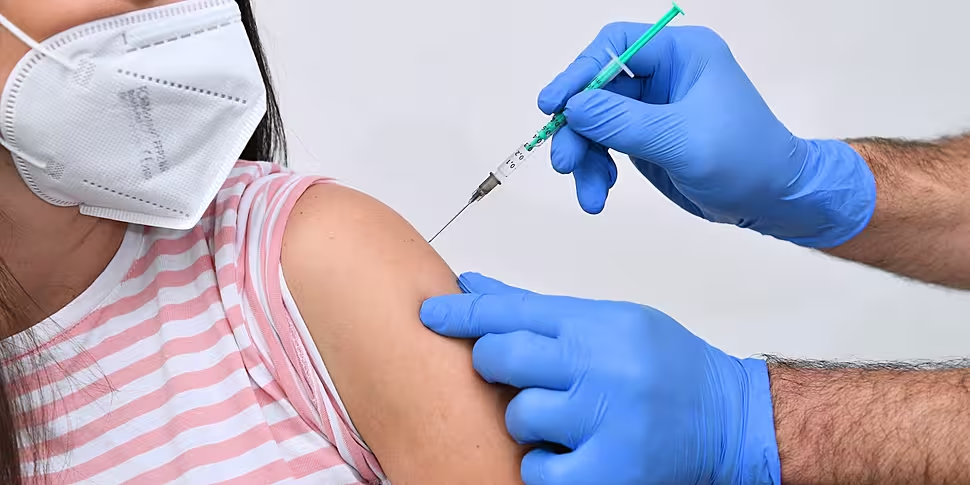COVID-19 vaccine hesitancy may be down to a "lack of knowledge" about the jabs rather than anti-vaccination beliefs, a new study has suggested.
Research by the ESRI’s Behavioural Research Unit shows some people who are hesitant about getting a vaccine aren't aware of the benefits.
Researchers asked a sample of the general population to carry out a series of tasks - including a multiple-choice quiz about the effectiveness of the vaccines and the development process.
Those planning to take the vaccine got an average score of 67%.
The result dropped to 50% for those who were unsure, and only 37% for those planning not to take it.
Participants were also asked to list what they thought were the benefits and risks of the vaccines.
It found big differences among different people in listing the benefits.
Only 5% of those planning not to take the vaccine and around 50% of those who were unsure listed any benefit at all.
In contrast, 91% of people planning to take it listed a benefit.
Dr Deirdre Robertson, Senior Research Officer with the ESRI, spoke to Newstalk Breakfast about their findings.
She explained: “What we found was that most people said they were definitely going to take the vaccine - around 67% when we collected this at the end of January… and it has increased a bit since then.
“We found that people who are unsure who said they weren’t going to get the vaccine scored more poorly on the objective knowledge test than people who said they were definitely going to get the vaccine.
“People who were more hesitant about it were more likely to not list any benefits at all… than people who said they definitely would.
“We think there might be a gap in knowledge - that’s also a gap in awareness of the benefits - that could be one factor."
She stressed that hesitancy does not just impact people who are firmly anti-vaccine - while there are some who won't get a jab under any circumstances, there are others who just aren't sure.
She said: “It’s not just an anti-vaccination reaction, but maybe a lack of awareness of the benefits of it.”
Nonetheless, Dr Robertson noted there’s been a “huge increase” in willingness to take the vaccine in recent months - so there could be a “natural information campaign” as the vaccination rollout continues and people see the benefits to society.
She added: “Certainly there is scope there for information, particularly about the development process.
"We found that was one of the biggest predictors of someone who was vaccine hesitant - a lack of knowledge about how this vaccine had been developed so quickly.”
The study comes as the vaccine rollout continues, with registration set to open to those aged 30-39 in the coming days.









